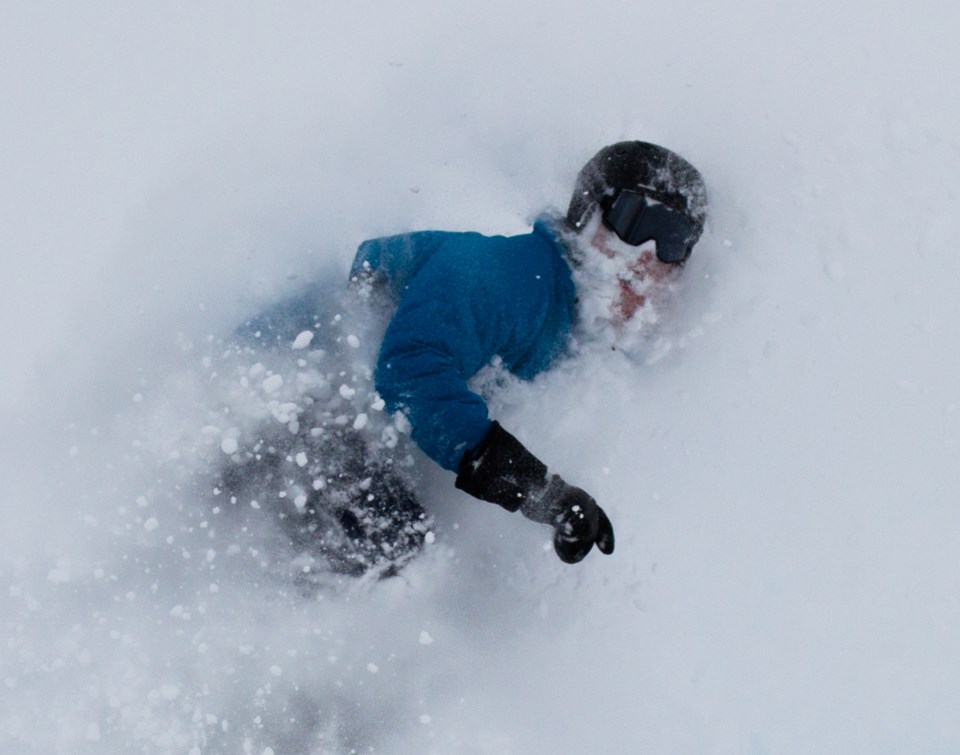I’ve been avoiding the word “stoked” for years. It’s a word that has well overstayed its welcome not just in ski towns, but in popular culture as a whole. While there aren’t many great alternative words to describe such an elated, positive feeling or immense satisfaction, I still endeavour to avoid using “stoked” in everyday conversation, and definitely steer clear of it in my writing, where I can (don’t worry, the irony is not lost in that statement).
That doesn’t mean I don’t have fun anymore—I still very much enjoy finding new hobbies and activities that rival getting pitted in deep pow or landing a jump right in the sweet spot. But there’s another side to getting (or being) stoked that can tip over from immense positive into borderline negative. It’s called overstoke.
Let’s take a look at a couple of textbook cases of overstoke in the mountains, which you’ve probably read about as human factors, or psychological factors that have a high chance of affecting sound judgment in the backcountry.
The “Blue Sky” or “Euphoria” effect is when everything seems to line up right for a day of awesome ski-touring. The weather is clear, the group is strong and the skiing is the best you’ve had all year. Everyone wants to maximize days like this, but the overstoked skier MUST do that extra lap—and feels compelled to drag a tired group along. The overstoked may also consider pushing into riskier terrain, because the FOMO of not skiing it in these great conditions is going to weigh on them all season.
The “consistency” effect can sneak up on people in the mountains, but the overstoked are the most vulnerable to it happening without them realizing it. Consistency is when people begin to obsess over reaching their goal for the day, the risk compounding with each subsequent decision that gets them closer to the objective. The sentiment of “we’ve come this far, might as well go for it,” becomes more and more of a deciding factor for the overstoked. “Summit fever” is an example of this. When summer alpine hiking and scrambling, the route may look achievable and the sunny weather might look like it’s going to hold, but just because you had a goal of making it to the peak doesn’t mean you have to push your group past their own physical or mental comfort levels.
Up until this point, I’ve described scenarios where sober second thought and an open dialogue with group members can alleviate getting into unsafe situations. The better you know those in your group, the easier that dialogue is to initiate, and the easier it is to flag when overstoke is taking hold of one or more members and compromising the safety of the whole group.
Then there’s the whole other side of the overstoke, where people can end up doing harm to their social or intimate relationships in the mountains. To keep it light in this first instalment of Tales of the Overstoke, I’ll describe an opening day on Whistler Mountain some years ago. I uploaded from Creekside with five other friends, some whom I knew better than others. It was an opening day for the books, with more than a metre of unconsolidated snow waiting to be skied. After a few laps on the Emerald and Red Chairs and many, many pow turns, I urged the group to follow me into a zone I knew would be the best skiing of the day. What I didn’t take into consideration was three of our group were snowboarders, and getting to this spot required a requisite amount of traversing and sidestepping.
But my overstoked self didn’t see it that way. I knew the mountain the best and I was going to help everyone get the deepest snow of the day. I was convinced they’d all think the extra hassle and frustration of getting to this spot (which more than one person voiced) was worth it.
The whole group made it to the spot and one by one, we all got the deepest powder turns of the day I was hoping for. I had my camera in tow and got some amazing shots which I shared with them that evening. And while everyone agreed that, yes, the turns were great, I’d earned myself a reputation as someone who prioritizes powder over social norms. My close friends might have come to expect it over the years, but it isn’t the best impression when you’re making new ones.
Do I regret going to that zone on that day? Not really. What I do regret is dragging people there who didn’t know what they were getting themselves into. Lesson learned.
Vince Shuley is now more cognizant of his overstoke. For questions, comments or suggestions for The Outsider, email [email protected] or Instagram @whis_vince.




